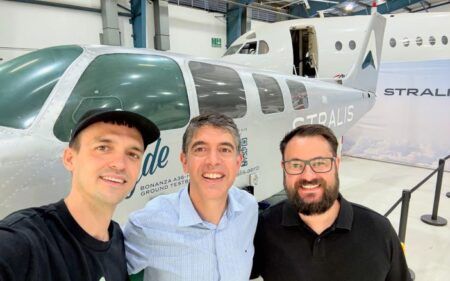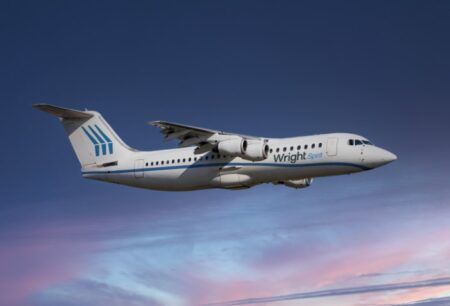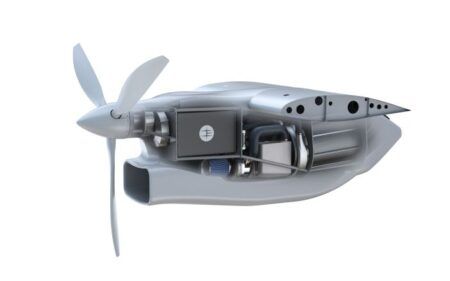The developer of a turbo air-cooled hydrogen fuel cell system has revealed its first working prototype, while claiming that the technology will reduce the delivery timelines for hydrogen aircraft by years.
HyPoint’s fuel cell uses uses compressed air for both cooling and oxygen supply, to deliver a high-temperature system that is three times lighter than comparable liquid-cooled low-temperature fuel cell system.
The prototype has passed key validation testing to prove its technical viability and the company expects the first full-scale versions of the fuel cell to be available next year.
Testing has shown that the turbo air-cooled hydrogen fuel cell system will achieve up to 2,000 watts per kilogram of specific power, more than triple the power-to-weight ratio of traditional hydrogen fuel cells systems. It will also feature up to 1,500 watt-hours per kilogram of energy density, enabling longer-distance journeys.
According to Hypoint the fuel cell also uses lightweight bipolar plates and a highly-conductive corrosion-resistant coating to deliver up to a 50% reduction in total cost of ownership for aircraft makers and empower them to create practical, cost-effective zero-emission vehicles.
Hypoint is working with hydrogen-aircraft ZeroAvia to test the fuel cell system. Val Miftakhov, founder and CEO of ZeroAvia said, “The reality is that hydrogen fuel cells are the technological driver behind e-aircraft and we are working closely with the team at HyPoint to test their systems for potential integration into future ZeroAvia aircraft.”
ZeroAvia became one of the first companies to successfully complete a hydrogen-electric passenger aircraft flight last year.
HyPoint is also working with the US Department of Energy’s National Renewable Energy Laboratory (NREL) to test and validate its hydrogen fuel cell technology.
Alex Ivanenko, founder and CEO of HyPoint said, “The prototype has passed a number of subsystem tests that strongly suggest that our patented technology and approach works — and we’re excited to use NREL’s state-of-the-art testing facilities to further validate our system. Moreover, we’re thrilled to be a part of the emerging hydrogen economy, which seeks to replace harmful fossil fuels with hydrogen, the universe’s most abundant energy source.”
In December 2020, HyPoint was named a winner of NASA’s iTech Initiative, in which inventive technologies were ranked based on criteria that included technical viability, likely impact on future space exploration, benefits to humanity, and commercialization potential.
A technical white paper about HyPoint’s technology can be found here.





